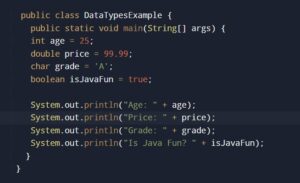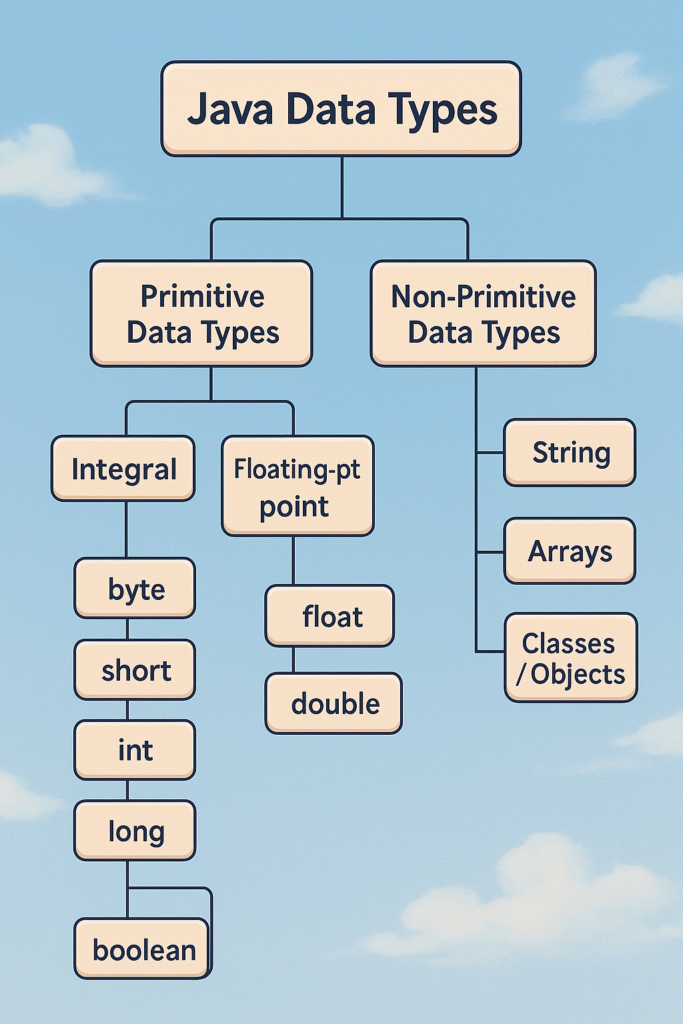When you write any Java program, you deal with data — numbers, text, characters, or even logical values.
But Java needs to know what kind of data it’s working with before it can process it.
That’s where data types come in.
What Are Data Types in Java?
A data type in Java defines the type of value a variable can store and the operations that can be performed on it.
Think of it like a label that tells Java:
“Hey, this variable will store a number” or “This one will store text”.
Categories of Data Types in Java
Java data types are mainly divided into two categories:
-
Primitive Data Types
-
Non-Primitive (Reference) Data Types
1. Primitive Data Types in Java
Primitive data types are basic types built into Java.
They store simple values and are not objects.
Java has 8 primitive data types:
| Data Type | Size | Example | Description |
|---|---|---|---|
| byte | 1 byte | 10 | Small integers (-128 to 127) |
| short | 2 bytes | 1000 | Medium integers (-32,768 to 32,767) |
| int | 4 bytes | 25000 | Default integer type |
| long | 8 bytes | 100000L | Large integers |
| float | 4 bytes | 10.5f | Decimal numbers (single precision) |
| double | 8 bytes | 99.99 | Decimal numbers (double precision) |
| char | 2 bytes | ‘A’ | Single characters |
| boolean | 1 bit | true / false | Logical values |
Example of Primitive Data Types :

2. Non-Primitive (Reference) Data Types
Non-primitive types are objects that store references (memory addresses).
Examples include:
-
String
-
Arrays
-
Classes
-
Interfaces
Example :
String name = “Java”;
int[] numbers = {1, 2, 3, 4};
How Data Types Work in Java
-
Declaration → Define a variable with a data type
-
Initialization → Assign a value to it
-
Usage → Perform operations

Why Are Data Types Important?
-
Memory Management → Prevents wasting space
-
Data Safety → Avoids storing wrong types of values
-
Performance → Speeds up execution with optimized data storage
Explore More at the5amcoder.com
Looking for more beginner-friendly Java content, Spring Boot tutorials, or DSA tips? Visit the5amcoder.com and level up your coding skills — one concept at a time.
FAQs on Data Types in Java
Q1: What is the default data type for integers in Java?
A: int is the default for integers.
Q2: Can we store a float value in an int variable?
A: No, you must explicitly cast it.
Q3: Is String a primitive data type?
A: No, it’s a non-primitive type.
Q4: Which data type should I use for currency?
A: Use BigDecimal for precise currency calculations.
Final Thoughts
Understanding data types in Java is the first step toward writing clean, efficient, and bug-free code.
Choose the right data type based on the size and type of data you need to store — it will make your programs faster and easier to maintain.
